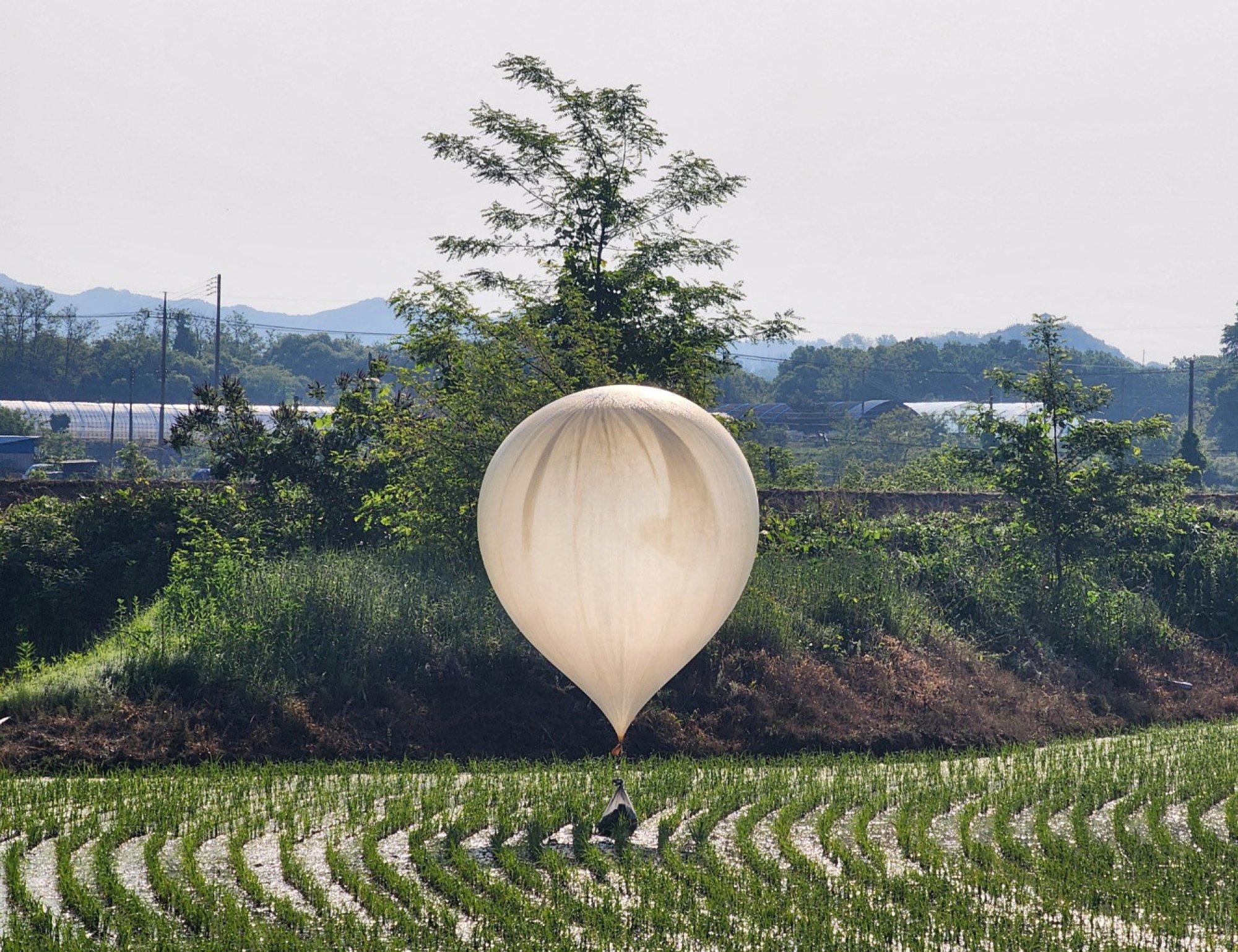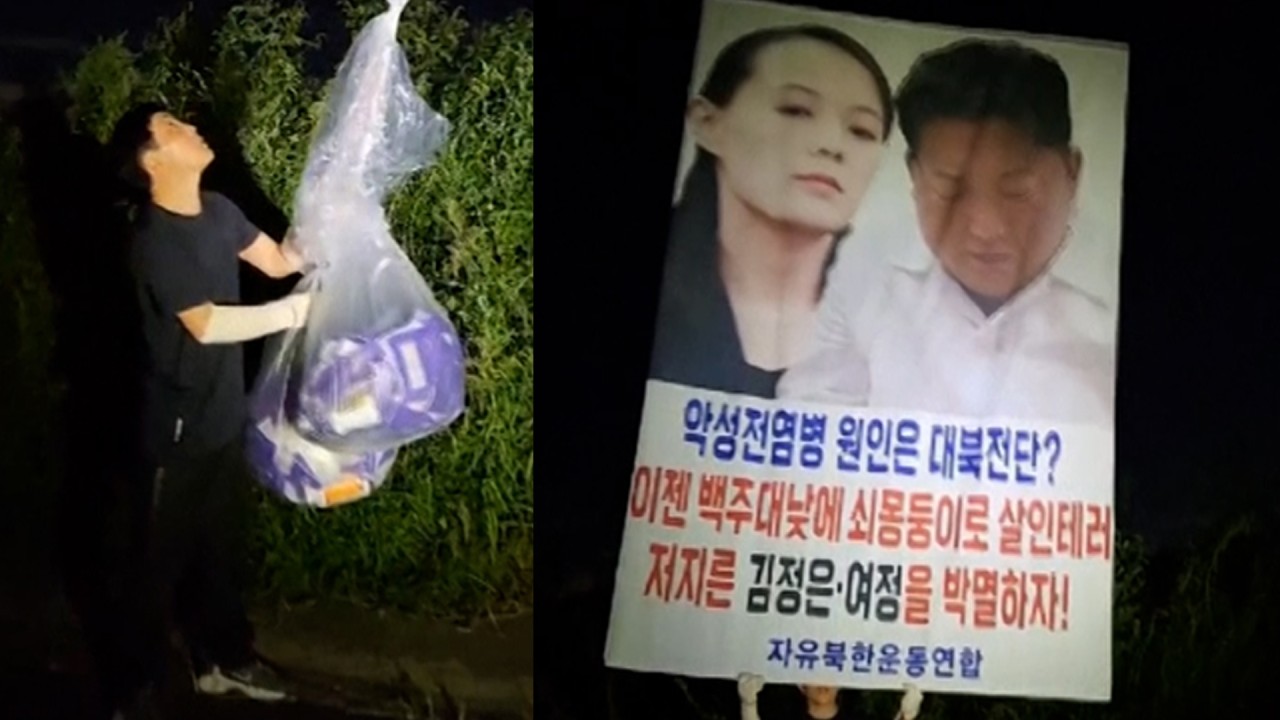The military’s explosives ordnance unit and chemical and biological warfare response team were deployed to inspect and collect the objects, and an alert was issued warning residents to keep away and report any sightings to authorities.
By Wednesday, more than 150 balloons had been detected, with some landing on the ground while others were still in the air, local media reported, citing military sources.
Balloons have regularly been sent the other way by South Korean activists, often led by North Korean defectors.
Those balloons carry leaflets with messages critical of Pyongyang, stirring tension between the neighbours, including incidents when the North reportedly tried to shoot them down.

Photographs released by the South Korean military on Wednesday showed inflated balloons with plastic bags tethered to them. Other images appeared to show trash strewn around collapsed balloons, with the word “excrement” written on a bag in one photograph.
On Sunday, North Korea’s vice defence minister issued a statement vowing to exercise “strong power for self-defence” and warned that “mounds of waste-paper and filth” would be sent to the South in response to its flying “dirty things” to the North.
North Korea has reacted angrily to South Korean activists’ balloons, which also carry information about the democratic society in the South and even USB memory sticks with K-pop music videos.
Previous South Korean governments have sought to stop activists from conducting such campaigns, arguing they did not help advance peace and endangered the safety of residents near the border.
A ban on balloon launches introduced in 2021 was later ruled unconstitutional by a top court, which said it violated freedom of speech.
The two Koreas’ large militaries face off across the military border and North Korea routinely threatens to annihilate its neighbour.
Peter Ward, a research fellow at the Sejong Institute, said sending balloons was a far less risky than taking overt military action.
“These kinds of grey zone tactics are more difficult to counter and hold less risk of uncontrollable military escalation, even if they’re horrid for the civilians who are ultimately targeted,” he said.


